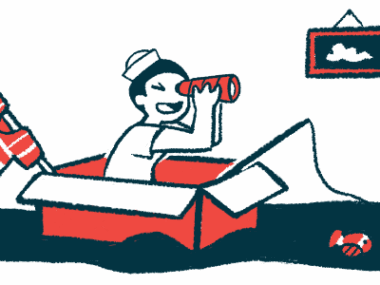The Power of Friendship: An Interview With Columnist Sherry Toh
Written by |

Longtime readers of my column will know that I am fellow columnist Sherry Toh’s biggest fan. Navigating SMA alongside her has been one of the greatest honors of my life. This week, Sherry and I thought it would be fun to interview each other — not only to celebrate SMA Awareness Month, but also to highlight how our friendship has influenced our relationships with disability.
Excerpts of our conversation follow:
BA: I never expected that one of my best friends would have a disability, let alone SMA. Can you talk a bit about how our friendship has changed your views on disability, and vice versa?
ST: Talking to you was the gateway to me learning about the social model of disability. You were the first to put the framework into concrete language for me and to illustrate disability as a social and cultural phenomenon, although I was halfway there by way of working on my internalized ableism myself.
Funnily enough, we met after I’d been isolated for over a year because I had to learn to manage my chronic neuropathy. Before all the numbness and pain, I’d go out regularly and stay up late. Now, I stay home and try to sleep at 10:30 p.m. to avoid pain flares. The change in routine and loss of friends was hard. But if I didn’t go through that grief, I wouldn’t have joined the Facebook group where we met. Meeting you was also the beginning of seeing the good that comes with disability.
As someone with significant privilege, it bothers me that I can’t do more to support the international SMA community. But you have taught me the importance of using my platform to uplift multiple marginalized voices. What would you say to someone who wants to get involved in international disability advocacy but doesn’t know where to begin?
Remember we’re all a work in progress. The international community is broad and complicated; there will be differing, and perhaps conflicting, opinions and there’ll be times you get things wrong. As long as you don’t assume everyone else sees things through your own culture’s perspective, it’s OK to make mistakes while learning. But you have to quickly move on from passive guilt to active allyship.
I owe the life I have to you. Privilege comes with resources and connections, and it matters how you use them, as the marginalized are often isolated. I wouldn’t be where I am in my personal life, career, or fight for the treatment Evrysdi (risdiplam) if it weren’t for you.
We’ve written several columns about the ways in which our friendship has pushed us to confront our internalized ableism and embrace our truest selves. Obviously, any friendship can encourage growth, but how is a disabled friendship like ours uniquely suited to that kind of transformation?
Because nondisabled people can’t fully understand what you’re going through with your disability, their encouragement can unfortunately feel like pitiful platitudes. This is not so with disabled friends. When you share a disability like we do, it provides the confidence that the other person means it when they say they know life gets hard and you’ll be OK. You’re paradoxically challenged by being validated. The other person has been through similar dimensions of disability that you have, after all.
It’s especially helpful when you are going through a rough time. You and I were lucky to have similar tastes in media and hobbies to bond over, but SMA was the foundation, and it really showed through how you kept me going when I hit a low point last year.
Summer is the season for disability pride. What does disability pride look like for you right now, and how does our friendship influence that definition?
I’m embracing Disability Pride by learning not to “perform” certain sides of myself. As disability advocates, we may have knee-jerk responses of distancing ourselves from ableist stereotypes as loudly as possible. It’s not a bad thing. The defensiveness can just get tiring. Learning to just be is easier — and probably healthier — in the long run.
To end on a light note, do you, the Sherry wine to my Brie cheese, identify with the foodstuff you’re named after? How so?
Yes. Apparently, sherry is dry and connoisseurs call it underappreciated. I vibe with that.
Thanks for reading! You can follow me on Twitter and Instagram, subscribe to my newsletter, or support me on Substack.
Note: SMA News Today is strictly a news and information website about the disease. It does not provide medical advice, diagnosis, or treatment. This content is not intended to be a substitute for professional medical advice, diagnosis, or treatment. Always seek the advice of your physician or other qualified health provider with any questions you may have regarding a medical condition. Never disregard professional medical advice or delay in seeking it because of something you have read on this website. The opinions expressed in this column are not those of SMA News Today or its parent company, Bionews, and are intended to spark discussion about issues pertaining to spinal muscular atrophy.





Leave a comment
Fill in the required fields to post. Your email address will not be published.